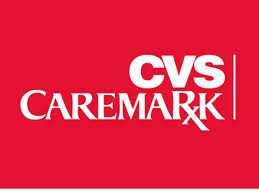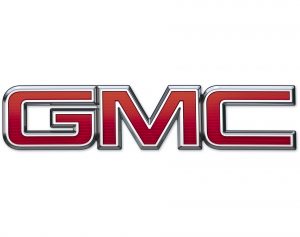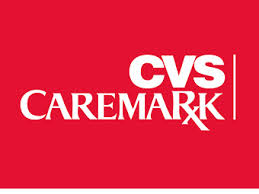 Top Class Action Lawsuits
Top Class Action Lawsuits
Drug Co-Pays too much? CVS got hit with a proposed consumer fraud class action lawsuit this week, alleging it has engaged in a massive fraudulent scheme with third parties to increase generic prescription drug costs for consumers who buy them using their insurance. The goal of the scheme is allegedly to increase profits. Of course.
According to the lawsuit, filed in the U.S. District Court for the District of Rhode Island, CVS knowingly colludes with third-party pharmacy benefit managers (PBMs) to raise the prices of generic drugs, charging consumers what it calls a “co-pay.” However, a significant portion of this amount in fact goes back to PBMs. CVS also earns more money from the transaction compared to customers who don’t use insurance.
Using their leverage with pharmacies, the PBMs negotiate lower prices that the insurance companies have to pay to pharmacies, the complaint asserts. In turn, pharmacies, benefit from having enrollees in the insurance plan come to their stores to have their prescriptions filled.
According to attorneys for the plaintiffs, “when customers go to CVS to fill their prescription, they assume they should use insurance to buy their drugs. In fact, pharmacists often insist on getting customers’ insurance information, even if the customers don’t want to use it. Now we know why – pharmacies are making more money from insurance purchases than cash purchases because of the secret deals they reached with PBMs.”
The CVS pharmacy lawsuit alleges CVS engages in is a two-pronged drug pricing scheme and has done since at least 2010. This scheme allegedly violates the Racketeer Influenced and Corrupt Organizations (RICO) Act and federal ERISA laws.
In the first part of the scheme, customers who use their insurance to fill prescriptions at CVS are actually charged a higher price for the same medication than those who pay with cash or don’t use their insurance, according to the suit. CVS does not informs customers that they can save money by not using insurance, the complaint claims.
Megan Schultz, named plaintiff in the lawsuit, alleges she used her insurance to purchase a certain generic drug at her local CVS. Under her plan she paid $165.68, but if she had paid cash, without using her insurance, she would have paid only $92, a 45 percent difference that CVS never told her about. Seriously?
Further, the second part of the scheme involves CVS overcharging customers by collecting “co-pays” that exceed the pharmacists’ price and profit, again unbeknownst to the customer, according to the complaint. CVS gives this extra cash back to PBMs, again part of an undisclosed agreement between the PBMs and CVS, the complaint alleges.
These contracts between CVS and the PBMs are sealed from public view under strict confidentiality agreements, barring consumers from ever learning the true source of their drug cost.
Customers who used their insurance at CVS or another pharmacy to buy one of the following generic prescriptions may be affected, this list includes some but not all of the affected prescriptions: Acyclovir, Albuterol, Alprazolam, Amoxicillin, Amphetamine, Azithromycin, Cephalexin, Benzoyl Peroxide, Clindamycin, Clonazepam, Clonidine, Diazepam, Flonase, Hydrocodone, Ibuprofen, Lantus, Levocetirizi, Levofloxacin, Levothyroxine, Lexapro, Lorazepam, Oxycodone, Penicillin, Percocet, Prednisone, Restasis, Sertraline, Simvastatin, Singulair, SMZ/TMP, Tamiflu, Viagra, Vitamin D.
The lawsuit states that this hidden fraud violates federal racketing laws. The suit also brings claims of fraudulent concealment, fiduciary conflicts of interest, lack of adequate care and violations of state consumer rights laws.
Under ERISA, CVS has an obligation as a fiduciary to act “solely in the interest of the participants and beneficiaries,” according to the suit. Plaintiffs believe that by engaging in this alleged fraudulent scheme, CVS has failed to uphold this duty. Further, by basing its profits in this collusion with a third party, it has created a blatant conflict of interest that harmed its customers.
Top Settlements
And then there were two… It’s the scandal that keeps on giving. Nissan stepped up this week, agreeing to pay $97.7 million to settle allegations of consumer fraud regarding defective Takata Corp air bags. If this goes through, Nissan will be the fifth automaker to exit the multidistrict litigation (MDL), joining Toyota, Subaru, Mazda and BMW who have jointly ponied up $553.6 million to end their liability in the litigation.
Under the terms of the Nissan airbag deal, $87M would be set aside for the consumers’ settlement fund for reimbursement of all costs, ranging from child care payments and towing fees to lost wages. Nissan would also create a free rental vehicle program.
If the settlement does receive court approval, the only two remaining automakers named as defendants in the MDL would be Honda and Ford. Lawyers for the plaintiffs said they would continue to pursue their case against them.
The first consumer lawsuit was filed in 2014, alleging the Takata airbags, which contained volatile ammonium nitrate inflator, can misfire, especially in humid conditions. This sends shrapnel and fumes into the vehicle cabin at high velocity. Nissan recalled more than 52,000 vehicles as a result of the airbags. At least 11 deaths in the US are linked to the defective airbags, and Takata has faced enormous global recalls.
Under the terms of the agreement, an estimated 4.4 million Nissan vehicles will be covered. Nissan will inform the owners about the dangers of the Takata air bags and provide class members with coverage for repairs, including parts and labor. The plan also opens the possibility of a residual distribution payment of up to $500 per class member. The settlement does not involve claims of personal injury or property damage.
The case is In re: Takata Airbag Products Liability Litigation, case number 1:15-md-02599, in the U.S. District Court for the Southern District of Florida.
Endo seeing the end of AMS litigation… Finally, and end is in sight—at least for the litigation. This week, Endo International PLC announced that it will settle “virtually all known” AMS transvaginal mesh product liability lawsuits. This includes lawsuits in the US and internationally.
In a statement issued by the Irish-based maker of transvaginal surgical mesh, Endo stated it will end the known US claims at “reasonable values” and will make installment payments starting in the fourth quarter of 2017 and continue making payments until the end of 2019. It will set aside $775 million to cover roughly US 22,000 mesh implant claims as well as all known international mesh product liability claims and other related matters.
The company stated that it at this time it isn’t aware of any claims that won’t be covered by the $775 million.
In April 2014, Endo said that it had reached settlements with several of the remaining plaintiffs suing American Medical Systems (AMS) Inc. over allegedly harmful vaginal mesh products, resolving “substantially all” of the claims in the case without admitting any liability or fault.
Then, in March 2016, Endo said it was winding down its Astora Women’s Health unit, formerly AMS Women’s Health, to reduce the potential for product liability claims related to future mesh implants. At that time it was facing numerous lawsuits alleging health complications caused by a number of vaginal mesh devices. AMS, based in Minnesota, was a major manufacturer of transvaginal mesh medical devices, which are support systems designed to correct pelvic organ prolapse, (POP) and stress urinary incontinence (SUI).
Ok – That’s a wrap for this week. See you at the bar!

 Top Class Action Lawsuits
Top Class Action Lawsuits

